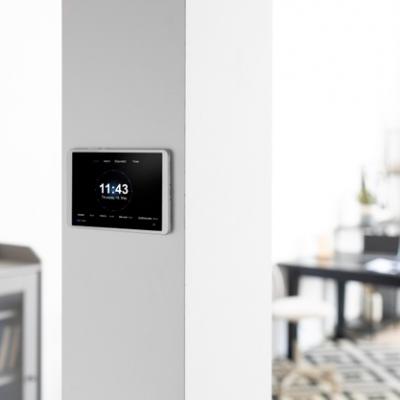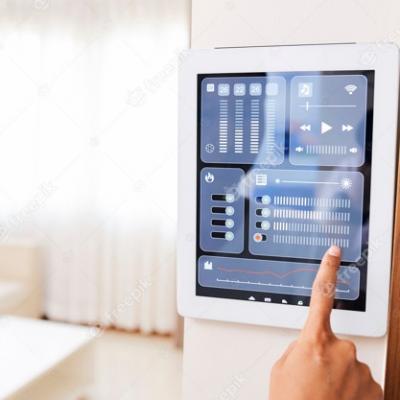Artificial Intelligence (AI) is transforming the landscape of smart homes, taking them beyond basic automation to a level of personalization and efficiency that was previously unimaginable. AI-driven smart homes are not just reactive—they’re proactive,
learning from user behavior and adapting to provide a more seamless and intuitive living experience.
1. Personalized User Experiences
One of the most significant impacts of AI in smart homes is the ability to create highly personalized environments. AI systems can learn from your daily routines, preferences, and behaviors, adjusting the home environment to suit your needs. For example, an AI-powered smart home might learn that you like the living room temperature to be slightly cooler in the evening and automatically adjust the thermostat without you having to lift a finger.
2. Predictive Maintenance and Energy Efficiency
AI can also enhance energy efficiency by predicting and optimizing usage patterns. For instance, AI can analyze weather forecasts and occupancy data to adjust heating and cooling systems more efficiently, potentially saving homeowners a significant amount on their energy bills. Additionally, AI can predict when appliances might need maintenance, notifying homeowners before a breakdown occurs, thus extending the life of their devices.
3. Advanced Security Systems
AI is revolutionizing home security by providing advanced monitoring and threat detection capabilities. Modern AI-powered security systems can differentiate between routine activity and potential threats, reducing the number of false alarms. These systems can also recognize familiar faces and alert homeowners to unusual activity, such as an unknown person lingering near the property.
4. Seamless Integration and Interoperability
As the number of smart home devices grows, AI plays a crucial role in ensuring that these devices work together seamlessly. AI can act as a central intelligence that coordinates various devices, ensuring that they communicate effectively and respond to user commands in a unified manner. This level of integration reduces the complexity of managing multiple devices, making the smart home experience more cohesive.
5. Voice Assistants with Enhanced Capabilities
Voice assistants like Amazon Alexa, Google Assistant, and Apple’s Siri are becoming increasingly intelligent thanks to AI. These assistants are now capable of understanding context, managing complex requests, and even holding conversations. As AI continues to evolve, we can expect voice assistants to become even more integral to the smart home experience, acting as the primary interface between users and their connected devices.
The integration of AI into smart homes marks a significant step forward in the evolution of home automation. By learning and adapting to the unique needs of each household, AI is transforming smart homes from simple automated systems into truly intelligent living spaces.








